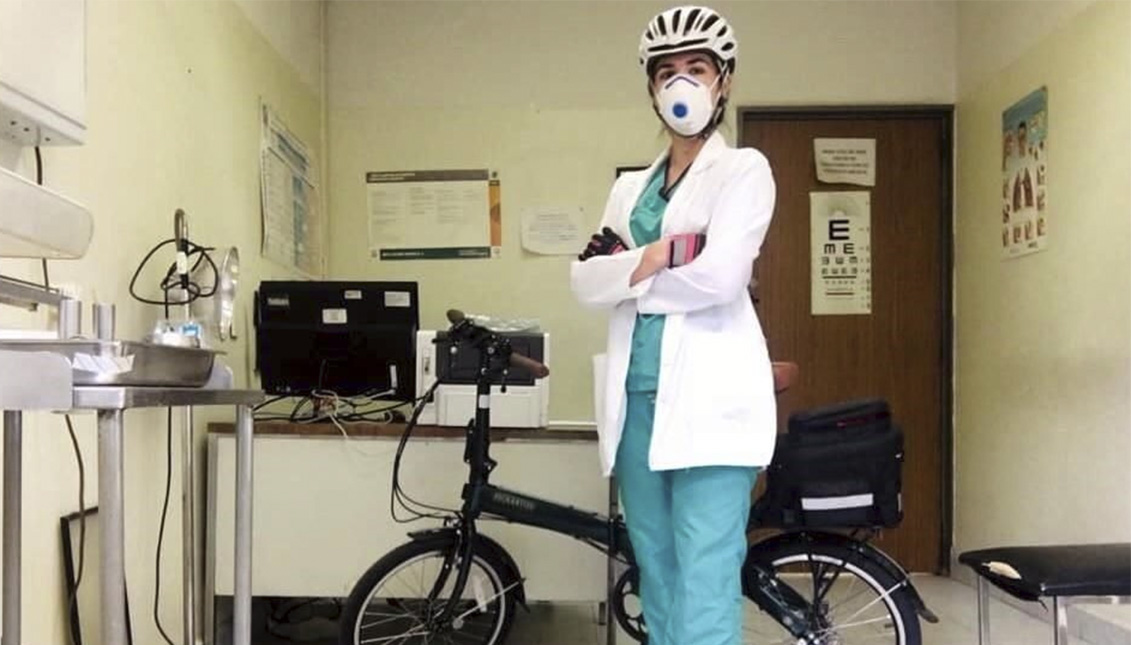
The "recicletas," sustainable transport of Mexican health workers during COVID-19
The pandemic has forced medical staff to fight on two fronts, against COVID-19 and against the discrimination they face for working with infected patients.
The world is not running smoothly. Mexico is already the third country in the world in terms of the number of coronavirus infections, and just yesterday, it broke its own record with more than 9,000 cases in one day — it already has nearly 440,000 cases and 48,000 deaths.
In this scenario, there are sometimes initiatives that try to facilitate the work of Mexican health workers, who face the fight against the virus at many levels — on the front line, treating infections, and in the street, trying to overcome the stigma of those who consider them, because of their exposure, a terrible danger.
Two Mexican organizations, Bicitekas and Alcaldía de la Bicicleta, have launched a new concept of transportation for health care workers who have trouble even taking a bus: they call it 'recicletas.'
It consists of recycling, restoring and giving away bicycles to hospital staff so that they can move around the city safely. To date, there are already more than a hundred restored bicycles in the hands of professionals in white coats and 200 more are on the way, according to EFE.
This is not a new idea. Bicycles have become the preferred transport mode in Mexico City to avoid the risk of contagion on trains, subways — a service used daily by 5 million people — and buses, and hospital and laboratory staff consider pedaling much safer.
RELATED CONTENT
"The use of bicycles has been increasing for more than 10 years and due to issues inherent to the pandemic this use will continue to increase," Luis Franco, administrator of Bicitekas, told EFE.
In fact, the Government of Mexico City has been promoting and rewarding this way of transport since last June and as part of the new normal, creating bike lanes like the one designed in the Insurgentes Avenue, which runs through the city from north to south.
The initiative came about three months ago, when Bicitekas and the Bicycle City Hall launched a call on social media for citizens to donate their old bicycles or parts in good condition to give to the medical staff.
"We are going to deliver as many parts as possible," said Franco, who recalled that they work with very limited resources and therefore need everyone's help.
Work is expensive and unpaid — each bike takes between two and six repairs depending on the state. But they know that the pandemic is an opportunity to promote the use of this sustainable transport to the detriment of cars, which generate 60% of air pollution in the Valley of Mexico.











LEAVE A COMMENT:
Join the discussion! Leave a comment.